By Melissa Lyon
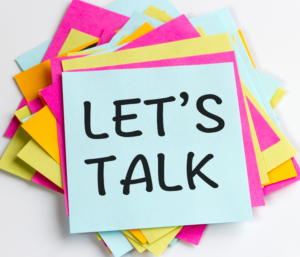
Do you have a story like this?…
I once had a supervisor ask me, “Why don’t you try to hide your disability?”. This made me feel like having a disability was something I should be ashamed of and it should be fixed. Another time when I was shopping with my mom and I was at the counter paying for a shirt, the clerk said to my mom who was standing behind me, “Would she like a bag for this?”. Again this made me feel small and invisible. Yet another example is of a co-worker who said, “You are so inspiring”, when all I was doing was sharpening my pencil! This comment would have been fine if I had actually done something that was inspiring but being called “inspirational” just for having a disability put the emphasis on my limitations, rather than on my strengths. It made me feel like my disability was my defining characteristic, which I hope is not the case!
Most people with disabilities have stories like this…subtle, small comments, called microaggressions, that can eat away at inclusion and one’s sense of belonging.
So, what can be done about these microaggressions that so many of us experience in our daily lives?
Promote Empathy And Belonging: Having empathy for others and making everyone feel like they belong are two great ways to make everyone feel accepted. If building relationships is promoted right from the start, there will be less misunderstandings and microaggressions from everyone involved because everyone will be aware of the strengths and challenges that people face.
Educate: It is important to realize that microaggressive comments are usually not meant in malice but are just a product of people’s assumptions and lack of knowledge about people with disabilities. Whenever you get a chance to educate others about your experience as a person with a disability, do so…and do it in a kind and friendly way.
Use Humour: Sometimes pointing out in a funny way how you have taken what has been said can be an easy way of making a point without ruffling anyone’s feathers. This could include paraphrasing what has been said using mild sarcasm.
Ask Questions: Asking a clarifying question about what has been said can put the onus on the person to analyze their thinking. Saying “Could you tell me more about what you mean by that?” or “What has brought you to that thought?” might be ways to put the focus back on what the person has said.
Challenge Stereotypes: Sometimes people don’t even realize their unconscious biases. Saying something like, “Actually, I have found that it is more like this” might help the person realize that what they have said is not based on facts, but rather on assumptions.
Acknowledge the Feelings on Both Sides: It is important to let the person know that what they have said did not feel very good for you. It is likely that their intent was not to make you feel bad and they should be aware of how the comment landed. It may also be useful to acknowledge the microaggressor’s feelings behind the comment they have made by saying something like, “It sounds like you are feeling very…”.
For further information about microaggressions, please check out these resources:
- A Guide To Responding To Microaggressions
- When and How To Respond To Microaggressions
- Three Disability Microaggressions and Why They Matter
So the next time someone uses microaggressions that make you feel small or invisible, consider it as a challenge. A challenge to educate and enlighten others…and build on inclusion rather than eroding it.
About the Author:
Melissa Lyon is a disability consultant for the Cerebral Palsy Association of BC. She has a master’s degree in Special Education and has worked hard to get to where she is now. As a person with mild cerebral palsy and epilepsy, Melissa is a strong advocate for people with disabilities. When not working, Melissa enjoys doing karate, where she is working on getting her black belt.
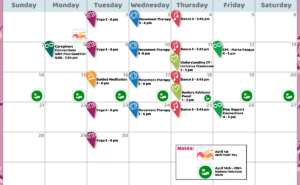 Programs Calendar
Programs Calendar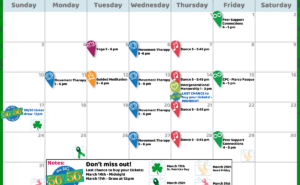 Programs Calendar
Programs Calendar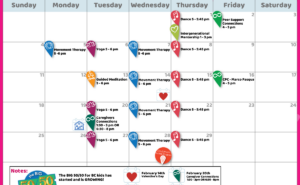 Programs Calendar
Programs Calendar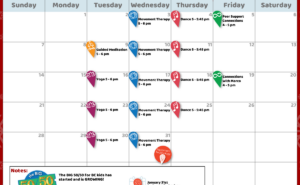 Programs Calendar
Programs Calendar

